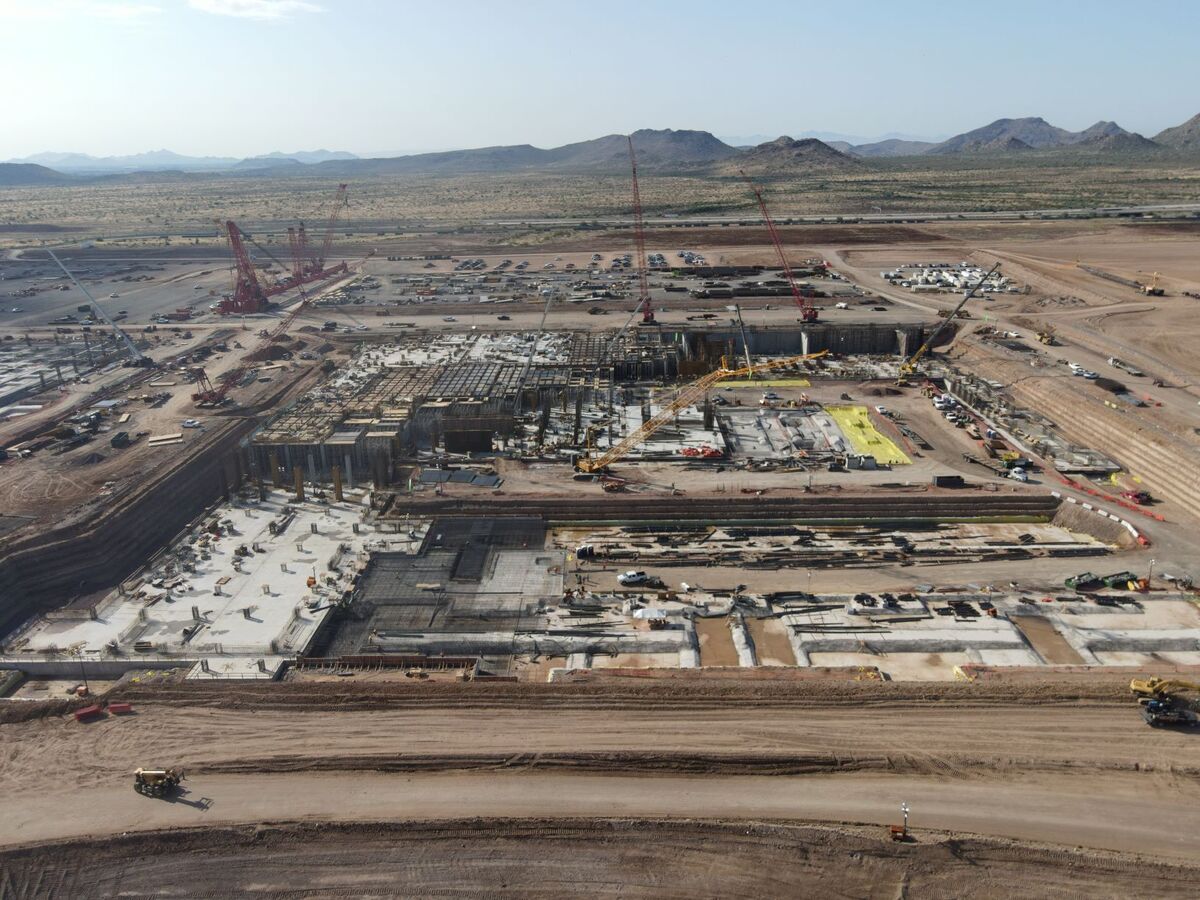































The Dow Jones Industrial Average shot up more than 450 points on Thursday, rocketing past 39,000 for the first time - with much of that gain attributed to one company's earnings buoyed by artificial intelligence and cloud tech.
Nvidia's fourth-quarter earnings report also pushed the S&P 500 to a new record and its best single-day gain of the past year.
"Nvidia's robust operating performance demonstrates its uniquely strong platform offerings for generative AI transformation that is seeing increasing adoption across industries and use cases," said Raj Joshi, senior vice president for Moody's Investors Service.
Nvidia reported a five-fold jump in AI and cloud revenue, and net income of more than$12 billion, exceeding forecasts by nearly$2 billion. The stock, which had slipped for four consecutive sessions before Wednesday's earnings, surged to a record high Thursday.
The chipmaker's revenue grew 265% in the fourth quarter, with those results directly related to it's being the only chip maker with a full-stack solution running generative artificial intelligence (genAI) platforms, from programmable GPUs and software to the networks required for modern cloud workloads.
"Accelerated computing and generative AI have hit the tipping point; demand is surging worldwide across companies, industries and nations," said Jensen Huang, founder and CEO of Nvidia. "Our data center platform is powered by increasingly diverse drivers - demand for data processing, training and inference from large cloud-service providers and GPU-specialized ones, as well as from enterprise software and consumer internet companies. Vertical industries - led by auto, financial services and healthcare - are now at a multibillion-dollar level."
Over time, Joshi said, investors can expect to see more than 50% of Nvidia's data center business coming from clouds running AI services. The lesson has not been lost on cloud providers such as Google and Amazon, each of which have their own GPUs to support AI-centric workloads.
"Amazon already has two chips - one for AI inferencing and one for model training," Joshi said. "Google has been in AI business so long that they also have their own TPUs, and they're pretty impressive."
TPUs, or Tensor Processing Units, are chips that perform AI acceleration.
Along with rapidly growing use in data center servers, genAI is expected to drive on-device AI chipsets for PCs and other mobile devices to more than 1.8 billion units by 2030, according to ABI Research.
"What's new is the generative AI workloads running on heterogenous chipsets, which distribute workloads at the hardware level between CPU, GPU, and NPU," said Paul Schell, an industry analyst at ABI Research. "Qualcomm, MediaTek, and Google were the first movers in this space, as all three are producing chipsets running LLMs on-device. Intel and AMD lead in the PC space."
For the time being, Nvidia will be a tough act to follow, according to Joshi, because it is so far ahead of its competitors - including its next closest rival, AMD - in terms of its full-stack AI offerings.
The data center and cloud provider market is already facing a severe dearth of AI-specific GPUs - a shortage that's likely to continue for most of the remainder of 2024. That, in large part, is because of OpenAI's launch of its AI platform, GPT 3, in November 2022.
Currently, there's only one provider of specialized GPUs for Nvidia, AMD, and other market players, and that's Taiwan's TSMC. In addition to TSMC, Intel, Samsung, Micron, and Texas Instruments have all announced plans for, or have already begun to build, new US-based chip foundries and factories. Those efforts are at least partly because of President Joseph R. Biden Jr.'s CHIPS Act, which passed in 2022.
TSMC had planned to begin producing chips this year at one of its two Pheonix, AZ foundaries, but it has delayed that until 2027 or 2028.
"It's not just the [silicon] wafers," Joshi said. "These GPUs require a certain type of chip-packaging process that is specialized. That's where there's a shortage of capacity, and TSMC has been on the record of doubling that capacity this year. But the demand is unabsorbed because it's so strong. So, supply is improving by day, by week, by month, but demand also remains strong."
 TSMC
TSMC Construction of TSMC's 5nm semiconductor plant in Phoenix, Arizona is currently underway and had planned to begin producing chips in 2026. The facility will now not be operational until 2027 or 2028.
The CHIPS Act promises more than$52 billion in grants or loans to spur a reshoring of chip manufacturing or research in the US. To date, however, nary a drop of funding has been distributed to chip makers.
Over the past 30 years, the US share of global semiconductor production has fallen from 37% to just 12%, according to White House figures. Meanwhile, China's share of chip manufacturing has grown nearly 50% over the past two years and now makes up about 18% of the world's supply.
The CHIPS Act, however, will have little impact on semiconductor production at least for the next two years.
"The money will start flowing at some point in the near term, but these things Intel and others are building are going to take at least a couple of years. Maybe in 2026, the volumes become meaningful," Joshi said.
In the meantime, the tech-based rally on markets continued on Friday, with the Dow and S&P up again.
 Etiquetas calientes:
Inteligencia Artificial
Industria de la tecnología
Tecnología emergente
CPUs y procesadores
industria
PC de escritorio
Procesamiento del lenguaje Natural
Etiquetas calientes:
Inteligencia Artificial
Industria de la tecnología
Tecnología emergente
CPUs y procesadores
industria
PC de escritorio
Procesamiento del lenguaje Natural